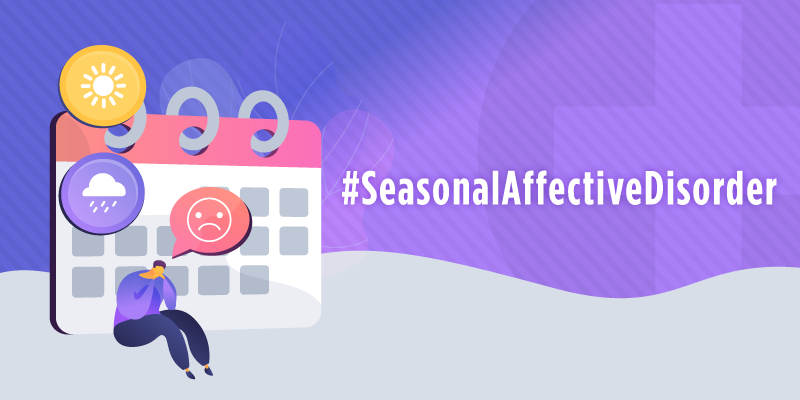Seasonal Affective Disorder, or SAD, is a type of depression that is associated with the winter months when cooler weather and shorter days cause feelings of sadness, low energy, and other symptoms associated with depression. SAD is thought to be triggered by lower levels of serotonin, due to reduced sunlight, a disruption in melatonin, and changes in our biological clocks. It is most common in those who have a family history of SAD, live further from the equator, or are already diagnosed with depression or bipolar disorder, however, the symptoms can occur in anyone. With many people already isolated and dealing with depression stemming from the pandemic, it’s important to focus on your mental health. Here are some steps you can take to help manage feelings of depression:

- Get outside during the day to get sunlight & exercise.
One of the most common tips for managing your mental health is exercise, fresh air, and sunshine. UV lamps are often prescribed for those who are experiencing SAD. Luckily, the Houston area tends to receive plenty of sunshine year-round. If you can find time during the day, whether before work or during your lunch break, it’s a good idea to go outside for a walk. If you can keep social distance, it may be even better to invite a friend or a neighbor to join you.

- Manage your stress and attitude.
How you handle stress and your general outlook can actually affect your health – both physically and emotionally. Take time each day to clear your mind of stress or focus on something that brings you joy. Any form of meditation, yoga or tai chi, deep breathing exercises, or any kind of creation (music, art, etc.) that helps you process emotion and take your mind off your stressors can be beneficial to your physical and mental well-being.

- Take care of your physical health
It’s not surprising that our physical and mental well-being are closely linked. Eating right, getting plenty of sleep (but not overdoing it), exercising, and drinking plenty of water will all help keep you mentally healthy as well.

- Don’t be afraid to ask for help
We are all dealing with change, difficult situations, and stress. If you find you are having a difficult time managing your mental health, please get help. If you don’t already have a mental healthcare provider, reach out to a friend or family member who can help you coordinate finding a mental health professional who can provide therapy or possibly even medication. Here is a list of treatment resources or local Houston mental health resources to help you with your search.
This is a tough time for everyone’s mental health and going into the winter months, more people will likely need help managing their stress levels and mental health. Implement strategies to help yourself stave off COVID depression and SAD.

